business
Everything You Need to Know About the Team Behind Milei’s Libra Meme Coin
Published
1 month agoon
By
admin
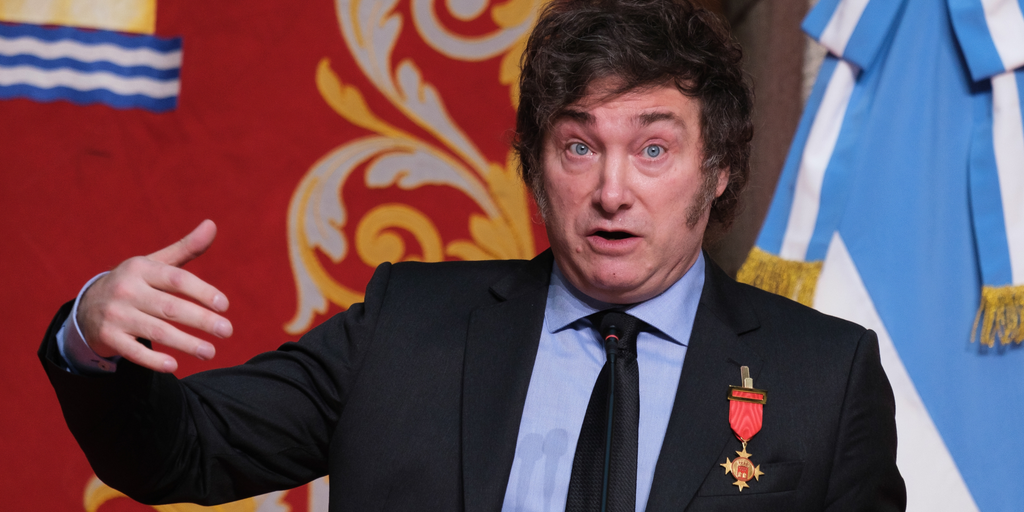
Argentina’s President, Javier Milei, is under intense scrutiny this week after promoting the controversial Solana-based meme coin LIBRA via social media on Friday.
Mere hours later, Milei removed his posts from his official X account, claiming he had little to no knowledge about the token—stating instead that he thought it was a company looking to finance private ventures.
While the token has crashed and a lawsuit has been filed, those looking to shirk the blame and point the finger elsewhere are scrambling to deflect responsibility.
As the dust settles, four individuals have surfaced as key figures that are allegedly behind the launch: Julian Peh, Hayden Davis, Mauricio Novelli, and Manuel Godoy. But who are they?
Julian Peh, KIP Protocol
KIP Protocol as an organization gets most of the blame from Milei. Julian Peh co-founded the company and is currently acting as the CEO.
Peh studied law at the National University of Singapore, between 2000 and 2004, according to his LinkedIn, founding two companies in the process.
Post-graduation, he worked as a lawyer at the firm Allen & Overy Shook Lin & Bok for two years before joining the Citibank Ultima Card as a consultant for five years.
He then went on to found an Asian luxury magazine and a suite of luxury retail mobile apps. During this period, he became the owner of a luxury investment company, a role he still holds.
In April 2023, he founded KIP Protocol, which brands itself as a “technical AI solutions company focused on deploying AI infrastructure.” In February, KIP Protocol closed a strategic funding round led by Animoca Ventures, one of the largest investors in crypto projects and the venture investment arm of Web3 game publisher Animoca Brands.
In an interview with “The GM Show,” Peh explained that he got into crypto in 2016 after he sold his luxury mobile app company. He says he bought his first Bitcoin via LocalBitcoins before getting pulled in by the Ethereum initial coin offering or ICO boom. He then dove into the world of NFTs, claiming to still own some CryptoKitties as of June 2024.
It appears that Peh met with President Milei in April at the Tech Forum Argentina, a conference where both were set to speak and KIP Protocol was an official sponsor. The pair and other attendees like Cardano founder Charles Hoskinson were pictured at the conference.
Then, in October, Peh met with Milei to discuss how AI could help Argentina—with the pair posing for another photo, according to a KIP Protocol blog post.
I was honoured to have an in-depth discussion with President Javier Milei @JMilei on how AI will impact societies.
I shared on how AI affects the jobs of the future, how it’s important for all countries to have a strategy for AI sovereignty, and how @KIPprotocol is focused on AI… pic.twitter.com/gGnrnorHrs
— Julian @ 𝗞𝗜𝗣 ㊋⫸ (@julian_kip) October 20, 2024
These encounters led to KIP Protocol being invited to join the Blockchain Committee of the Buenos Aires City Government, which the company accepted.
In December 2024, KIP Protocol launched its KIP token on Ethereum, launching at a $32 million market cap. However, it has since fallen to $8.43 million, according to CoinMarketCap, although these figures are based on self-reported figures of the circulating token supply.
Hours after the launch of LIBRA on Friday, KIP Protocol said the token would “help private enterprises,” calling it a success. This X post stated that it is a “private enterprise project,” and that President Milei was not involved in development.
Peh maintains that neither he nor KIP Protocol were involved in the token launch, affirming that Davis’ company, Kelsier, holds all funds. Peh did not respond to Decrypt’s request for comment.
Hayden Davis, Kelsier
Davis has been at the forefront of the media storm following the LIBRA launch, being interviewed by investigative journalist Coffeezilla and Barstool Sports founder Dave Portnoy.
He studied international business at Christian college Liberty University before founding Luxury Drip and Leaders Elevate. According to his LinkedIn, Davis is a “hustling expert” as well as a “serial entrepreneur.” In October 2020, he joined Kelsier, a company aiming to provide Web3 go-to-market expertise, as Chief Executive Officer.
Surprisingly, before this fiasco, Davis had a fairly small digital footprint. That said, on January 30, President Milei posted on X, posing alongside Davis and claiming that he had an “interesting” chat in which he was advised about blockchain and AI.
LA TECNOLOGÍA ES ALIADA DE LA LIBERTAD
Hoy mantuvimos una muy interesante charla con el empresario Hayden Mark Davis, quien me estuvo asesorando sobre el impacto y las aplicaciones de la tecnología blockchain e inteligencia artificial en el país. Seguimos trabajando para… pic.twitter.com/LOX4xiyzhA
— Javier Milei (@JMilei) January 30, 2025
According to the statement posted by the official President of Argentina X account, Davis pitched the technological infrastructure of the LIBRA project. The post claims he was acting on behalf of KIP Protocol, but this fact has been disputed, as Davis is instead the CEO of Kelsier.
In a statement following the LIBRA collapse, Davis claimed that he is President Milei’s advisor and said that he is working on “much bigger tokenization and really cool stuff in Argentina.” However, the X statement by the President of Argentina following the LIBRA launch stated that “Mr. Davis had no and does not have any connection with the Argentine government.”
Amid the chaos, Davis defended Peh, claiming that his company is “completely innocent of any wrongdoing.” He further claimed that Milei pointing the finger at KIP Protocol was done in self-defense.
In a written statement, Davis outlined his role with LIBRA as being responsible for “ensuring liquidity” and acting as the custodian, not the owner, of associated funds. He later claimed he is now in control of $100 million worth of funds relating to the project but insists that it is not his. When pressed about who owns those funds, he vaguely said, “It’s Argentina’s.”
In an interview with Coffeezilla, Davis confirmed that Mauricio Novelli and Manuel Godoy from Tech Forum Argentina were involved in the LIBRA token launch. This is in line with a statement issued by KIP Protocol, that it was Novelli that came to Peh pitching the LIBRA token.
In text messages viewed by both CoinDesk and La Nacion, Davis reportedly claimed that he had influence over Javier Milei, and that by paying the president’s sister—Argentine government official Karina Milei—that the head of state “signs whatever I say and does what I want.”
Davis denied the allegations to CoinDesk. Kelsier did not respond to Decrypt’s request for comment.
Mauricio Novelli and Manuel Godoy, Tech Forum Argentina
The exact role of Novelli and Godoy is still unclear but the pair may have been central to the conception of the token. The pair were part of the team behind Tech Forum Argentina, the conference that KIP Protocol sponsored with President Milei and Peh in attendance; Novelli and Godoy also appear to be featured in the aforementioned photo.
Novelli is a professional trader, actively competing in the World Cup Trading Championships. He is currently third in the 1st Quarter Futures Day Trading Championship, but according to Argentine newspaper Ambito, he was crowned the “best trader in America” in the third quarter of 2024, and was second worldwide in the futures tournament.
He studied at the University of Cambridge, Universidad Argentina de la Empresa (UADE), and Università Bocconi, according to LinkedIn, before joining Galicia Bank as an account executive then moving to BBVA as a senior account executive.
Novelli then founded N&W Professional Traders, a company that offers courses on how to trade effectively, in 2019. In February 2021, the firm received an official endorsement from Milei, two years before he became President of Argentina.
“If you want to invest like the professionals do, I recommend that you get acquainted with the friends at NW Professional Traders,” Milei says directly to the camera, according to Google Translate. In the description of the video, it claims Milei has taken the company’s courses.
Once he became president in 2023, N&W Professional Traders praised Milei, posting two photos with him and a screenshot of Milei’s Instagram account with the company’s link in his bio.
It appears that the pair maintained a relationship, with Novelli visiting Casa Rosada, the Argentinian government office, on multiple occasions, according to the Director at the Center for Political Economy of Argentina, Julia Strada. On one occasion, they even brought Godoy and posted a photo to Instagram.
Novelli did not immediately respond to Decrypt’s request for comment.
Manuel “Manu” Godoy, according to LinkedIn, studied at UADE at the same time as Novelli. This may be how the pair met. He then went on to be a project manager at an esports and gaming agency before founding four separate companies.
In 2016, he posted his first video to YouTube on the mobile game Clash Royale and soon became a full-time content creator, eventually pivoting from gaming to finance videos. Since then, he has racked up nearly a million subscribers on YouTube, along with 188,000 on X and 183,000 on Instagram.
On X, Godoy appears to be a vocal supporter of Milei, referring to him as a “dictator voted for by the people.” He also joked in January about a potential official MILEI token, claiming that it could pay the country’s debt.
In 2024, according to a YouTube video, he appears to have launched an NFT collection called Kmanus88 (the same name as his YouTube account), but it was soon rebranded to Bipzy. These NFTs were initially listed by owners for as much as $27,000 worth of Ethereum, but now are listed for as little as $785. There hasn’t been an announcement in the Discord since June 2024.
Godoy did not respond to Decrypt’s request for comment.
Who’s to blame?
On Sunday, KIP Protocol denied involvement and blamed Mauricio Novelli for originating the LIBRA idea.
In his interview with Coffeezilla, Davis added Godoy to the list of those involved. According to KIP Protocol and Davis, KIP’s role was organizing fund allocations to “Argentinian companies.”
Davis, as Kelsier’s CEO, acted as a “launch strategist,” he said, making decisions based on the “team’s” direction. This left Davis in control of over $100 million in LIBRA-related funds. Novelli was allegedly the one who pitched the token to KIP, while Godoy, his associate, appears to have been involved from within Tech Forum Argentina.
Precisely who will ultimately be held responsible remains uncertain. Each of these four figures allegedly played a unique role in the chaotic launch. The question now is: Will any of them take the blame amid increasing scrutiny?
Edited by Sebastian Sinclair and Andrew Hayward
Daily Debrief Newsletter
Start every day with the top news stories right now, plus original features, a podcast, videos and more.
Source link
You may like


XRP Price Reversal Toward $3.5 In The Works With Short And Long-Term Targets Revealed


Former New York governor advised OKX over $505M federal probe: Report


First Digital USD (FDUSD) Depegs After Justin Sun Alleges Firm Is ‘Insolvent’ and Not Fulfilling Redemptions
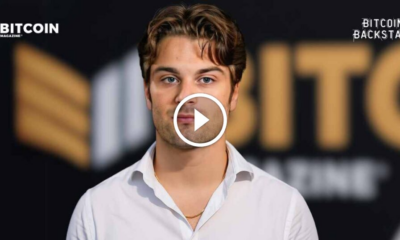

Gen Z’s Bitcoin Bet, The Largest Wealth Transfer In History?
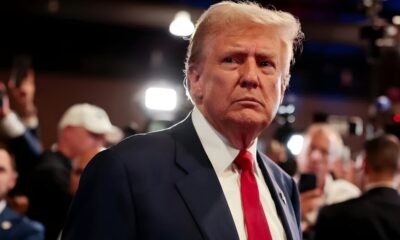

Trump’s Crypto Conflicts Dominate Stablecoin Legislation Debate


First Digital denies allegations, threatens legal action
business
FDIC Clears Path for Bank Crypto Activities Without Prior Approval
Published
5 days agoon
March 29, 2025By
admin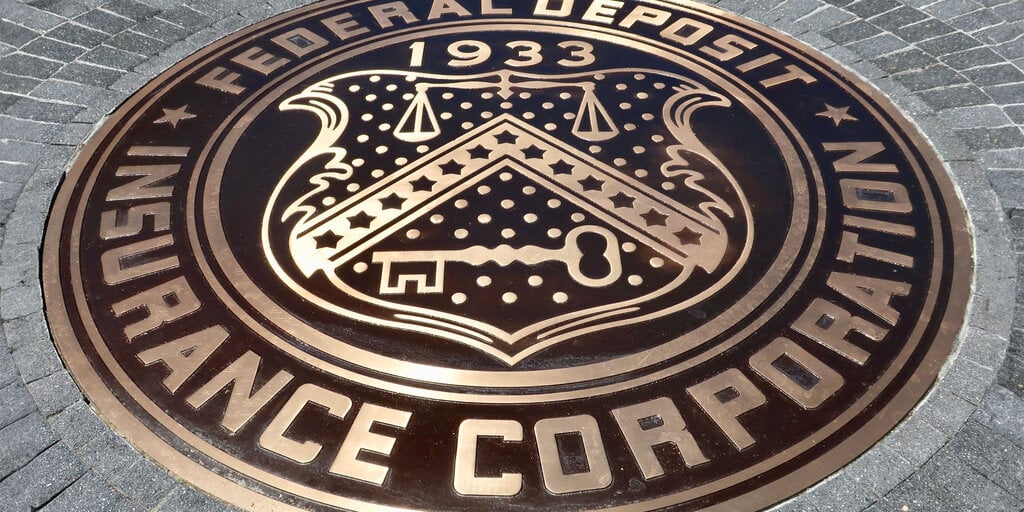
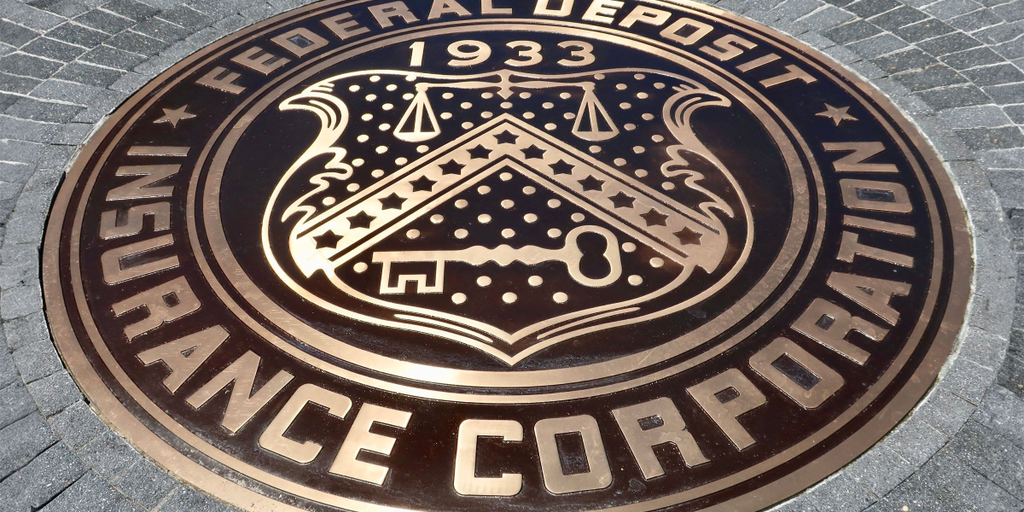
Banks can engage in cryptocurrency and other legally permitted activities without seeking prior regulatory approval, so long as they manage risks appropriately, The Federal Deposit Insurance Corporation announced Friday.
The policy change rescinds a 2022 requirement that mandated FDIC-supervised institutions notify the agency before engaging in crypto-related activities. Under the new guidance, banks can offer services involving digital assets without the agency’s advance permission.
“With today’s action, the FDIC is turning the page on the flawed approach of the past three years,” FDIC Acting Chairman Travis Hill said in a statement. “I expect this to be one of several steps the FDIC will take to lay out a new approach for how banks can engage in crypto and blockchain-related activities in accordance with safety and soundness standards.”
The move aligns with similar actions by the Office of the Comptroller of the Currency, which earlier this month reaffirmed that national banks can engage in certain crypto activities, including custody services and stablecoin transactions.
This regulatory shift marks a stark departure from the Biden administration’s approach to cryptocurrency and banking relationships. Documents released earlier this year through Freedom of Information Act requests showed the FDIC frequently deterred banks from offering crypto-related services, critics claimed.
The previous regulatory stance had drawn criticism from lawmakers who started investigations into what some called “Operation Chokepoint 2.0,” a reference to an Obama-era initiative that targeted certain industries including firearms dealers and payday lenders. Critics claimed the Biden administration had similarly targeted the cryptocurrency industry through banking restrictions.
In its new Financial Institution Letter (FIL-7-2025), the FDIC clarified that “FDIC-supervised institutions may engage in permissible crypto-related activities without receiving prior FDIC approval.”
The reversal follows months of pressure from cryptocurrency advocates and completes a significant pivot in federal banking policy. Industry representatives had accused regulators of using informal pressure tactics, including concerns about “reputational risk,” to discourage banks from serving cryptocurrency businesses.
American Bankers Association President and CEO Rob Nichols praised the decision. “We welcome FDIC’s new guidance allowing supervised institutions to engage in permissible crypto-related activities without receiving prior FDIC approval,” he said in an official statement. “America’s banks are actively evaluating ways to compete safely and responsibly across the financial services ecosystem, and this type of regulatory clarity is critical to enhancing innovation in the space.”
The FDIC emphasized that banks still need to consider various risks associated with crypto activities, including market and liquidity risks, operational and cybersecurity concerns, consumer protection requirements, and anti-money laundering obligations. The agency noted that institutions “should engage with their supervisory team as appropriate” when pursuing such activities.
Friday’s announcement comes as part of a broader effort by the Trump administration to remove hurdles for digital assets. Besides the OCC’s actions, the government is pushing for a crypto reserve, and taking actions to boost the local crypto ecosystem.
While cryptocurrency advocates welcomed the policy reversal, challenges remain for the industry—which, as consequence, means not everyone is excited with this regulatory shift. “Holy shit, the next Wall St. crash is going to make us long for the good ol’ days of the Great Depression,” said Justin Rosario, host of the political podcast “The Opinionated Ogre.”
Others expressed concerns about the abruptness of the change. “FDIC announces robust new requirement to engage in crypto activities: you must pinky swear,” bank advisor and expert Donald F. Billings wrote on LinkedIn.
The FDIC regulates and insures banks that hold trillions of dollars in deposits. Its new stance could potentially unlock significant capital flows into the cryptocurrency sector as banks reassess their ability to serve digital asset companies and offer crypto-related products to customers.
Edited by James Rubin
Daily Debrief Newsletter
Start every day with the top news stories right now, plus original features, a podcast, videos and more.
Source link
business
France’s Public Investment Bank Bpifrance to Invest $27 Million in Crypto
Published
6 days agoon
March 28, 2025By
admin
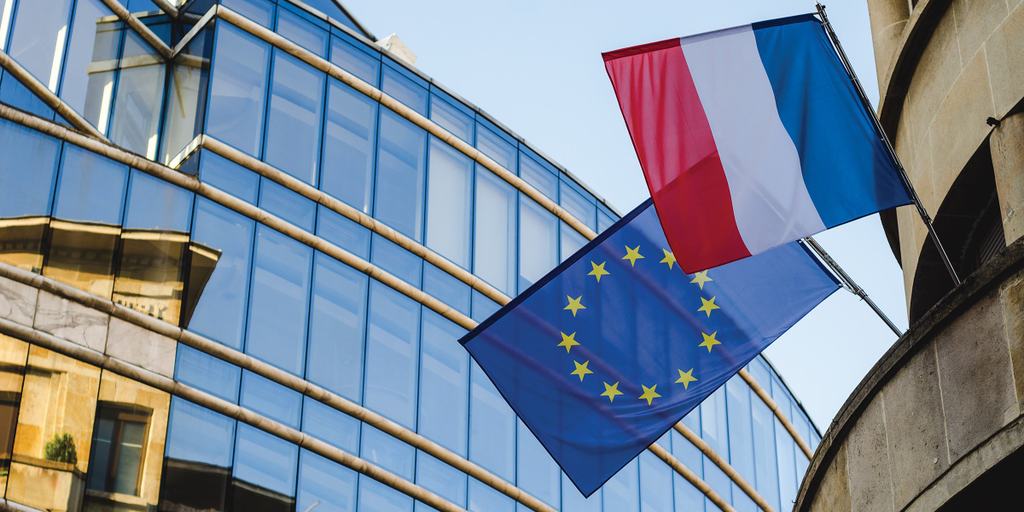
France-based public investment bank Bpifrance announced Thursday plans to invest $27 million (€25 million) directly into tokens and decentralized technologies in an effort to “strengthen the French blockchain ecosystem.”
Announced during a blockchain-focused event in Paris, the bank’s investment seeks to accelerate its “digital asset investment strategy” by bolstering French crypto startups and assisting the local venture capital players in Web3.
“We are convinced of the growing importance that these players will take on in the years to come, and we want to increase French competitiveness and presence in the field of digital assets,” Arnaud Caudoux, Deputy CEO of Bpifrance, said in a Thursday statement.
Bpifrance’s new fund will complement its long-standing financial support mechanisms—like grants, loans, and equity funding—by targeting blockchain-native models with a strong “French footprint.”
DeFi, staking, tokenization, Layer 1–3 protocols, AI-driven tools, and digital ID solutions are among them.
It represents one of the first moves by a major state investment bank to purchase open-market crypto tokens—a “pioneering initiative,” as Bpifrance put it.
Bpifrance will specifically target “smaller, newly-issued tokens” from French projects—assets that have yet to be listed on exchanges.
“The U.S. is really accelerating its own crypto strategy, so this is all the more important,” Caudoux said as cited in a Reuters report, noting the U.S. crypto push under President Donald Trump as a wake-up call.
Since his re-election, Trump has pledged to make the U.S. the “undisputed Bitcoin superpower,” floated plans to mine Bitcoin domestically, and vowed to make the nation the “crypto capital” of the world.
The pro-crypto President’s administration has also rolled back SEC enforcement against crypto firms, drawing blockchain talent and capital toward the U.S. at a time when Europe remains cautious.
In response to developments in the U.S., Bpifrance’s initiative seeks to retain and nurture blockchain talent within France.
Bpifrance is no stranger to crypto—it first backed hardware wallet firm Ledger in 2014 and has since invested in Aleph.im, Morpho, ACINQ, and others.
In a 2023 interview with Decrypt, Bpifrance’s Blockchain & Crypto Lead Ivan de Lastours said the bank was also exploring zero-knowledge proofs, noting their potential to verify authenticity in a world dominated by AI-generated content.
“They may be key to the future of the internet,” de Lastours said.
Walking the line
France’s broader crypto momentum got another boost this week when The Blockchain Group, a France-based tech firm listed on Euronext Paris, announced it had purchased 580 BTC, worth roughly $50.6 million.
While such initiatives show a proactive approach to Web3 innovation in France, it comes at a time when the country’s regulatory bodies are intensifying scrutiny of the crypto sector.
In January, French authorities launched a judicial investigation into Binance, the world’s largest crypto exchange, over allegations of money laundering and tax fraud.
The probe focused on activities between 2019 and 2024, with potential offenses committed in France and the European Union.
In November 2024, the French gambling regulator, ANJ, began probing Polymarket, a crypto-based prediction market platform, to assess its compliance with French gambling laws.
The probe was triggered after a French trader reportedly placed a multi-million-dollar wager on the outcome of the U.S. presidential election, prompting Polymarket to cut off access for users in France, effectively shutting out a significant segment of its audience.
Edited by Sebastian Sinclair
Daily Debrief Newsletter
Start every day with the top news stories right now, plus original features, a podcast, videos and more.
Source link
Bitcoin
GameStop Announces $1.3 Billion Fundraising Plan To Purchase Bitcoin
Published
7 days agoon
March 27, 2025By
admin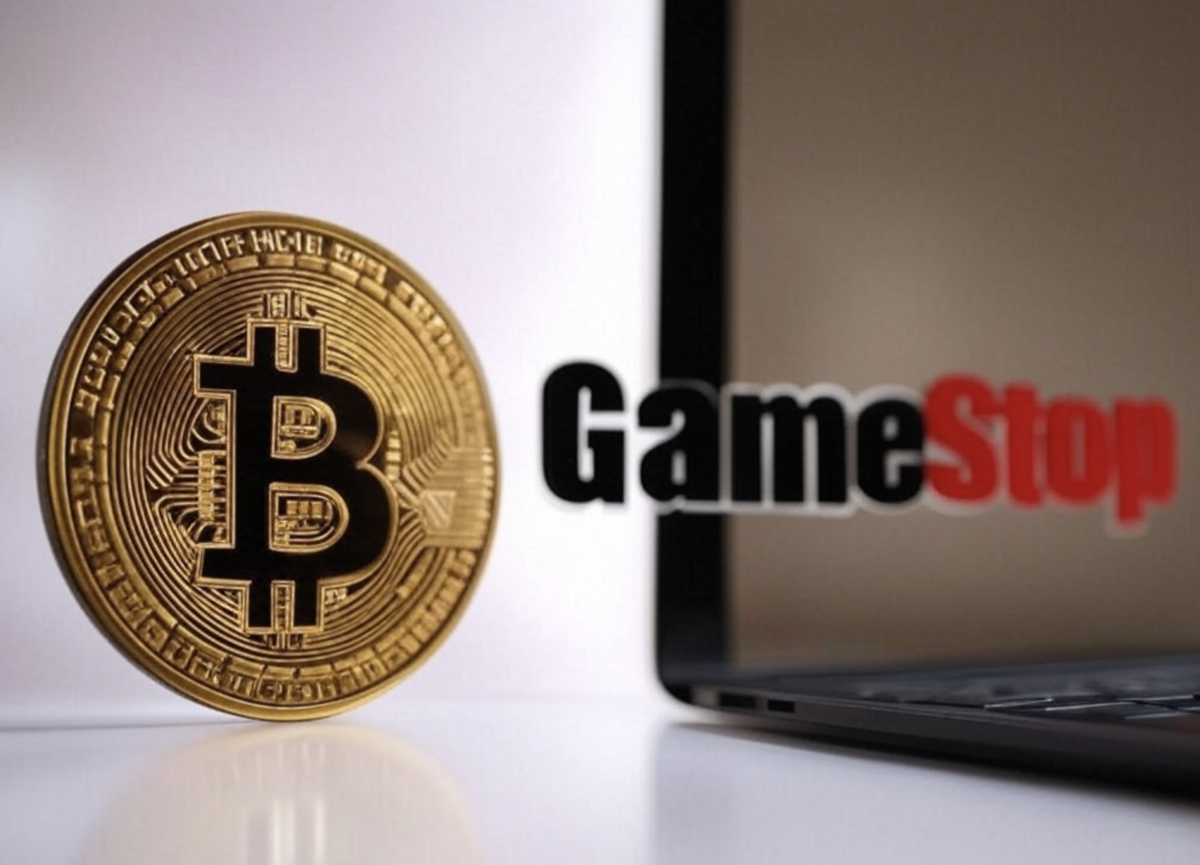
GameStop Corp. (NYSE: GME) announced today that it intends to raise $1.3 billion through a private offering of convertible senior notes and will use the net proceeds from this offering for general corporate purposes, including the acquisition of Bitcoin. The move comes a day after the company revealed an update to its investment policy, allowing Bitcoin to be used as a treasury reserve asset.
The offering consists of $1.3 billion aggregate principal amount of 0.00% Convertible Senior Notes due in 2030. Additionally, the company plans to grant initial purchasers an option to buy up to $200 million more in notes within a 13-day period from the first issuance date. The notes will be general unsecured obligations and will not bear regular interest or accrete in value. They will mature on April 1, 2030, unless converted, redeemed, or repurchased earlier.
Upon conversion, GameStop will have the option to settle in cash, shares of its Class A common stock, or a combination of both. The initial conversion rate and other terms will be determined at the time of pricing. The company stated that it expects to use the U.S. composite volume-weighted average price of its stock from 1:00 p.m. to 4:00 p.m. Eastern Daylight Time on the pricing date as the reference for the initial conversion price.
GameStop emphasized that neither the notes nor any shares of common stock issuable upon conversion have been or will be registered under the Securities Act of 1933 or any state securities laws. As a result, they may not be offered or sold in the United States without registration or an applicable exemption. The company also stated that there are no assurances that the offering will be completed as described or at all.
This marks a significant financial decision for GameStop as it pivots toward integrating Bitcoin into its corporate strategy. A strategy pioneered by Strategy’s Michael Saylor, who met with GameStop’s CEO Ryan Cohen in person last month, and has definitely appeared to have had an influence on the GameStop’s decision to embrace BTC as a reserve asset.
Source link

XRP Price Reversal Toward $3.5 In The Works With Short And Long-Term Targets Revealed

Former New York governor advised OKX over $505M federal probe: Report

First Digital USD (FDUSD) Depegs After Justin Sun Alleges Firm Is ‘Insolvent’ and Not Fulfilling Redemptions

Gen Z’s Bitcoin Bet, The Largest Wealth Transfer In History?

Trump’s Crypto Conflicts Dominate Stablecoin Legislation Debate

First Digital denies allegations, threatens legal action

Crypto Firm Galaxy Secures UK FCA Approval for License to Expand Derivatives Trading

Why Is The Bitcoin Price Surging Today?

Cardano Founder Reveals What Will Onboard 3 Billion New Users Into Crypto

Sentient open-source AI search outperforms GPT-4o and Perplexity

Memecoin Collapse Creates Perfect Moment for TradFi To Launch ‘Trusted Assets,’ According to Chris Burniske

Breez Announces Launch Of New Wallet, Misty Breez

Alabama, Minnesota Advance Bitcoin Reserve Plans With Companion Bills

Bitfarms secures $300m loan to fuel AI and data center growth

Crypto Hackers Stole $1.67B in Q1, a 300% Rise From Previous Quarter: CertiK

Arthur Hayes, Murad’s Prediction For Meme Coins, AI & DeFi Coins For 2025

Expert Sees Bitcoin Dipping To $50K While Bullish Signs Persist

Aptos Leverages Chainlink To Enhance Scalability and Data Access

Bitcoin Could Rally to $80,000 on the Eve of US Elections

Sonic Now ‘Golden Standard’ of Layer-2s After Scaling Transactions to 16,000+ per Second, Says Andre Cronje

Crypto’s Big Trump Gamble Is Risky

Institutional Investors Go All In on Crypto as 57% Plan to Boost Allocations as Bull Run Heats Up, Sygnum Survey Reveals

Ripple-SEC Case Ends, But These 3 Rivals Could Jump 500x

Has The Bitcoin Price Already Peaked?

A16z-backed Espresso announces mainnet launch of core product

Xmas Altcoin Rally Insights by BNM Agent I

Blockchain groups challenge new broker reporting rule

The Future of Bitcoin: Scaling, Institutional Adoption, and Strategic Reserves with Rich Rines

Trump’s Coin Is About As Revolutionary As OneCoin

Is $200,000 a Realistic Bitcoin Price Target for This Cycle?
Trending

 24/7 Cryptocurrency News5 months ago
24/7 Cryptocurrency News5 months agoArthur Hayes, Murad’s Prediction For Meme Coins, AI & DeFi Coins For 2025

 Bitcoin3 months ago
Bitcoin3 months agoExpert Sees Bitcoin Dipping To $50K While Bullish Signs Persist

 24/7 Cryptocurrency News3 months ago
24/7 Cryptocurrency News3 months agoAptos Leverages Chainlink To Enhance Scalability and Data Access

 Bitcoin5 months ago
Bitcoin5 months agoBitcoin Could Rally to $80,000 on the Eve of US Elections

 Altcoins2 months ago
Altcoins2 months agoSonic Now ‘Golden Standard’ of Layer-2s After Scaling Transactions to 16,000+ per Second, Says Andre Cronje

 Opinion5 months ago
Opinion5 months agoCrypto’s Big Trump Gamble Is Risky

 Bitcoin5 months ago
Bitcoin5 months agoInstitutional Investors Go All In on Crypto as 57% Plan to Boost Allocations as Bull Run Heats Up, Sygnum Survey Reveals

 Price analysis5 months ago
Price analysis5 months agoRipple-SEC Case Ends, But These 3 Rivals Could Jump 500x


